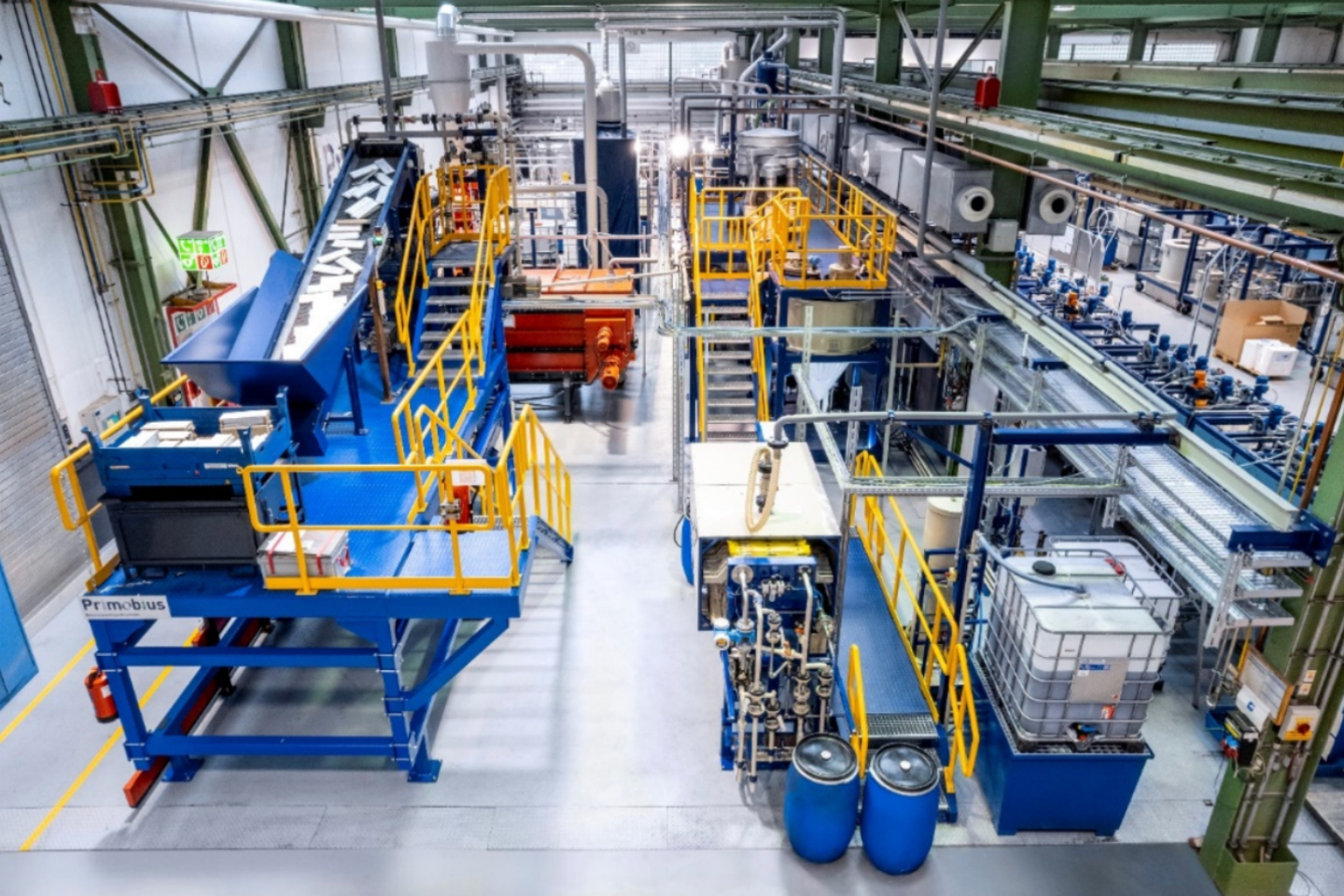The Australian Patent Office has granted Neometals’ recycling subsidiary Primobius timely protection for the key hydrometallurgical separation “hub” of its lithium-ion battery (LiB) recycling process – the downstream component of its mechanical battery disassembly “spoke” plant. The company recently revealed it had received an order from Mercedes-Benz for a 10-tonne per day lithium-ion battery shredding plant for its new recycling operation in Germany.


The Australian Patent Office has granted Neometals timely protection for its recycling subsidiary for the key hydrometallurgical separation “hub” of its lithium-ion battery (LiB) recycling process – the downstream component of its mechanical battery disassembly “spoke” plant.
The “LiB Recycling Technology” patent has been granted to Primobius, a joint venture vehicle held equally by Neometals, an Australian sustainable battery materials producer, and global plant manufacturer SMS group.
The patent is the first in the world to be granted from 17 applications filed by Primobius in key jurisdictions across the globe.
Neometals managing director Chris Reed said: “We are pleased to receive the first granted patent for our battery recycling process from the Australian Patent Office. This cements our competitive advantage as a leading provider of recycling solutions and allows Primobius to accelerate its recycling plant supply and licensing business model. The validation also provides encouragement that our portfolio of applications in other jurisdictions will similarly be granted.”
The two-stage recycling process recovers materials in LiB production scrap and end-of-life cells that might otherwise be disposed of in landfill. It chemically recovers nickel, cobalt, lithium and manganese battery materials, in addition to the physical recovery of other casing and barrier materials such as metals and plastics, turning them into new saleable products that can be reused in the LiB supply chain.
The first stage is described as a mechanical feeder “spoke”, where scrap LiBs are received, sorted, discharged and disassembled, along with shredding and separation. The process physically separates all the LiB components by casings, electrode foils, plastics and active battery materials.
The second stage is the principal focus of the patent. It is described as a hydrometallurgical refining “hub” and is comprised of leaching, purification, precipitation or solvent extraction and crystallisation of active materials suitable for use in the production of future LiB precursors.
Neometals says the evolution of the LiB Recycling Technology family of patents began with its first filing of an Australian provisional patent application, which led to it securing a “priority date” in late 2018. It then continued by filing a subsequent Patent Cooperation Treaty application, in addition to the 17 further national applications.
Management says the Australian patent provides vital protection for the “hub” component of its LiB Recycling Technology in Australia until late 2039 and adds that the grant is a significant development for Primobius as it pursues its recycling plant supply and technology licensing strategy.
Government agency IP Australia has rigorously examined the patent claims against global novelty, inventiveness and industrial applicability measures and Primobius can now more strongly assert its commercial rights.
The LiB Recycling Technology prioritises maximum safety, environmental sustainability and product recoveries to support both the circular economy and global decarbonisation imperative.
Mid-last month, Neometals’ revealed that Primobius had received an order from Mercedes-Benz to supply a 10-tonne per day LiB shredding plant for the global vehicle manufacturing giant’s new recycling operation at Kuppenheim in southern Germany.
This plant comprises the “spoke”, which is expected to have an annual capacity of 2500 tonnes and is designed to primarily recover many materials proposed to be recycled into the production of a planned 50,000 battery modules to be installed into new Mercedes vehicles.
Installation is expected to begin in this year’s final quarter, with commissioning slated to start in the following quarter.
The new plant represents a significant philosophical and operational shift for Mercedes as it will be the company’s first foray into the LiB recycling sphere of its operations that it says are intended to reduce resource consumption and establish closed-loop recycling of battery raw materials as it moves towards the production of electric vehicles (EVs).
The combined Mercedes orders also represent a major milestone for Primobius, as they constitute its first commercial recycling plant supply agreement to a global EV manufacturer – and its first significant revenue collection.
The game-changing installation for Mercedes is seen by Neometals as a strong validation of Primobius’ technology being able to meet the needs of global manufacturers and the wider automotive industry.
Is your ASX-listed company doing something interesting? Contact: matt.birney@businessnews.com.au












